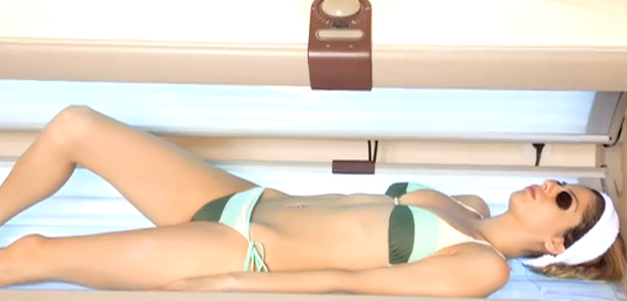Tanning Beds May Double the Risk of Skin Cancer Compared to Outdoor Sunlight

Doctors have been advising young people to protect their skin against sun damage for years now, with limited success. Between 1970 and 2009, the Skin Cancer Foundation notes that melanoma cases rose by 800 percent for women and 400 percent for men. Part of that increase was fueled by the rise in tanning beds. Now, one study has found that tanning in salons over summer sun exposure can double the risk of skin cancer at the same time as the Skin Cancer Foundation is filing a complaint against MTV for its promotion of tanning on the series Jersey Shore.
Though Jersey Shore has ended, the Skin Cancer Foundation maintains that the show will likely live on in syndication and spin-offs, still reaching the homes of the half a billion global customers that the channel reaches - and, most importantly, its impressionable young viewers. While the Foundation provided an intervention for the cast members after the first season, little change seemed to occur. In fact, the foundation found that the show made 186 visual or verbal references to tanning in just 17 episodes - all of them filmed after the intervention. The cast members also do not appear to take skin cancer seriously; one episode had cast member Pauly D. joking that he was most likely to suffer from skin cancer.
Most of the time, too, the cast members receive their complexion from tanning beds. A new study published in the British Journal of Dermatology found that tanning beds were particularly harmful in terms of skin cancer. Medical News Today reported that the researchers found that, compared to direct sunlight, the risk of skin cancer was 6 percent higher than in a tanning bed. The researchers also say that just stepping into a tanning bed one time before the age of 35 increased a person's risk of melanoma by 87 percent.
"They're not going to do you any good - the best case scenario is that they'll age and damage your skin; the worst case scenario is a cancer diagnosis and potentially death," study author Yinka Ebo said to Medical News Daily.
Spire Healthcare reports that the study also found that 90 percent of tanning beds in England fail to meet ultraviolet regulations imposed by the European Union in 2003.
Published by Medicaldaily.com



























